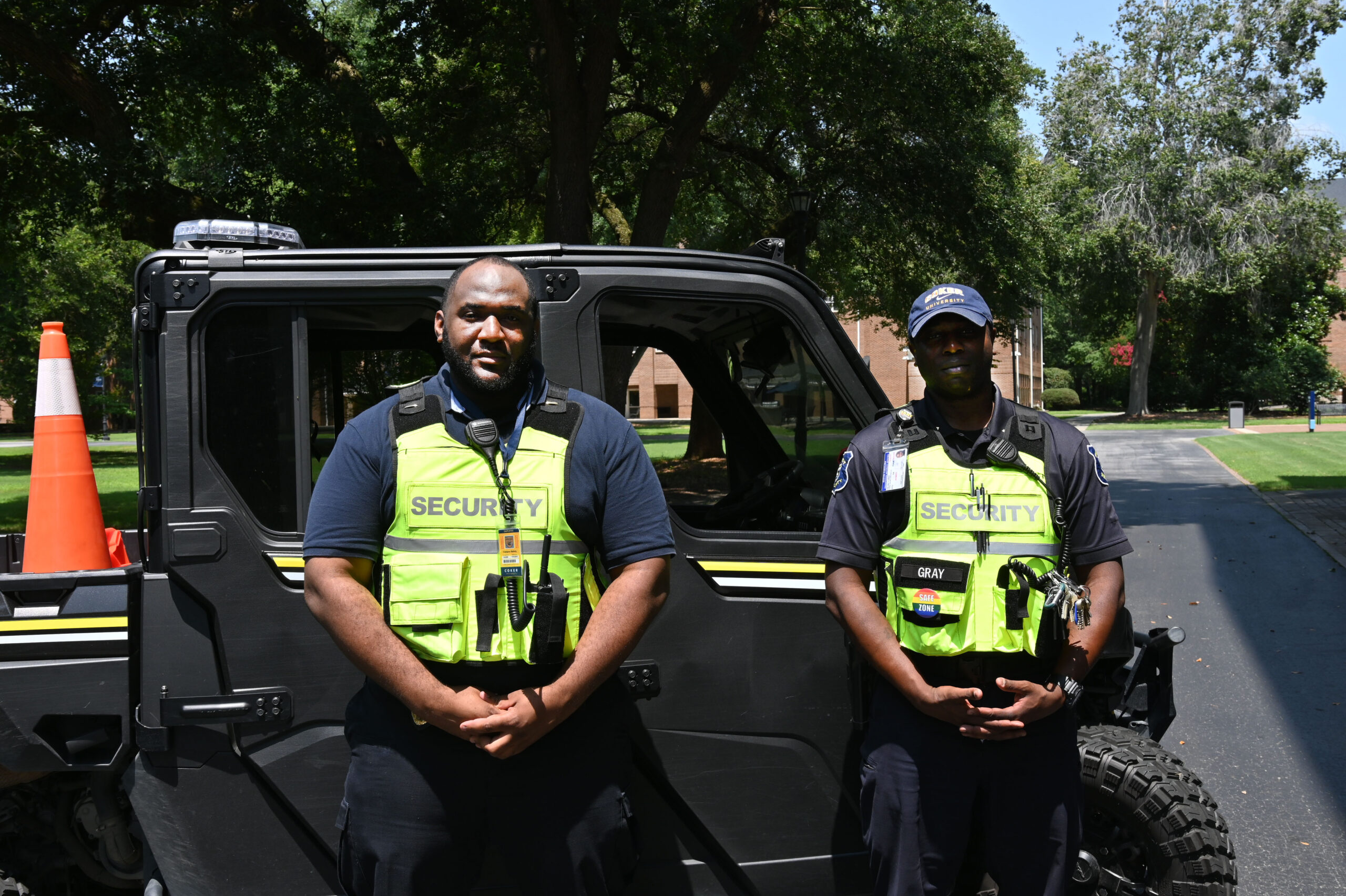So I Raped You' Message Leads to 2-4 Year Prison Sentence for 2013 Campus Assault
'So I Raped You' Message Leads to 2-4 Year Prison Sentence for 2013 Campus Assault

In a case that highlights both the persistent failures and eventual successes of the criminal justice system, Ian Cleary has been sentenced to two to four years in prison for sexually assaulting a Gettysburg College student in 2013. The sentencing comes more than a decade after the attack and follows a shocking Facebook message where Cleary confessed, "So I raped you," to his victim, Shannon Keeler.
The 2013 Gettysburg College Sexual Assault
The assault occurred during Shannon Keeler's first semester at Gettysburg College in Pennsylvania. She was just 18 years old when Ian Cleary, then a junior at the school, followed her back to her dormitory on the eve of winter break in December 2013.

According to Keeler's account to police, Cleary sneaked into her dorm when few people remained on campus for the holiday break. He then forced his way into her room and sexually assaulted her. The timing was particularly calculated—with most students gone, there were fewer witnesses and less chance of intervention.
Keeler went to authorities within hours of the attack, undergoing a rape kit examination and providing detailed statements to police. However, like many campus sexual assault cases, prosecutors proved reluctant to file charges despite the evidence she provided.
The Shocking Facebook Confession Message
Six years after the assault, in 2019, Keeler received a Facebook message that would reignite her pursuit of justice. Ian Cleary sent her a message stating plainly: "So I raped you."
Cleary later claimed he sent these messages as part of a 12-step recovery program, seeking to make amends and find atonement for his actions. However, the timing and delivery of this confession only served to reopen deep psychological wounds for Keeler, who had spent years trying to move forward with her life.
"The messages only reopened wounds I had long carried over the assault," Keeler told the court during her victim impact statement at the sentencing hearing.
Shannon Keeler's 12-Year Fight for Justice

Keeler's pursuit of justice became a years-long ordeal that exposed systemic failures in how sexual assault cases are handled. She repeatedly contacted authorities and prosecutors, trying to persuade them to press charges against her attacker.
After receiving the Facebook confession in 2019, Keeler renewed her efforts with law enforcement. Her case gained national attention in 2021 when she shared her experience with the Associated Press, highlighting the widespread reluctance of prosecutors to pursue campus sexual assault cases.
"The system meant to protect me protected you instead," Keeler said in a powerful 10-minute victim impact statement delivered at Cleary's sentencing. "This isn't just my story, this is the story of countless women."
Remarkably, Cleary was indicted just weeks after the AP story was published, suggesting that public pressure played a significant role in finally bringing charges in the case.
International Manhunt and Extradition from France
Following his 2021 indictment, Ian Cleary proved difficult to locate. After leaving Gettysburg College, Cleary had finished his education at a university in Silicon Valley, California, where he grew up. He later obtained a master's degree and worked for Tesla before moving overseas.
Authorities in the United States and Europe conducted a three-year search for Cleary. He was eventually detained in Metz, France, in April 2024 on an unrelated vagrancy charge. This arrest allowed for his extradition back to Pennsylvania to face the sexual assault charges.
Cleary's defense attorney maintained that his client had been homeless at times and was unaware of the charges against him. However, Adams County District Attorney Brian Sinnett expressed doubts about whether Cleary was genuinely unaware or actively evading justice.
The Sentencing: 2 to 4 Years in State Prison

On Monday, October 21, 2025, Senior Judge Kevin Hess sentenced Ian Cleary to two to four years in state prison after he pleaded guilty to second-degree sexual assault. The sentence falls below Pennsylvania's state sentencing guidelines and is significantly less than the maximum 10 years Cleary could have faced.
Judge Hess cited several mitigating factors in his sentencing decision, including Cleary's guilty plea, expressions of remorse, and documented long history of mental illness. The judge also noted that the case would not have proceeded without Cleary's confession.
"Anyone with daughters or, like him, granddaughters in college would find the crime 'horrifying,'" Judge Hess stated. "Nevertheless, the defendant has admitted his guilt, he's come forward and even though 10 to 11 alarming years have passed in the meantime, we wouldn't be here today but for his hope for some kind of forgiveness and contrition."
The prosecution and defense had initially proposed a four- to eight-year sentence, making the final sentence lighter than both sides had anticipated.
Victim and Advocate Response to the Sentence
Andrea Levy, Shannon Keeler's attorney, expressed mixed feelings about the outcome. "The sentence was less than what we expected and certainly less than he deserves," Levy said, "but there was relief that the case was over."
Keeler emphasized in her victim impact statement how the lengthy delay in prosecution had compromised the case. "The system that failed me a decade ago finally delivered accountability, but at a cost. Evidence was lost. Time passed," she told the court, noting that results from her rape kit had been destroyed by the time charges were filed.
"My life moved on, but the impact never went away, not for me, not for my family, not for anyone who had to watch this unfold again and again," Keeler said.
The Broader Issue of Campus Sexual Assault Prosecution

This case illuminates a persistent problem in the American criminal justice system: the reluctance of prosecutors to pursue campus sexual assault cases. Despite Keeler reporting the crime immediately and providing evidence through a rape kit, prosecutors initially declined to file charges.
Research has shown that campus sexual assaults often face unique challenges in prosecution. These cases frequently involve acquaintances rather than strangers, occur in environments where alcohol is present, and may lack witnesses or physical evidence beyond the victim's testimony and medical examination.
Keeler's persistence—and her willingness to go public with her story—ultimately made the difference. Her case demonstrates both the obstacles survivors face and the power of advocacy and public awareness in demanding accountability.
Frequently Asked Questions
Who is Ian Cleary?
Ian Cleary, 32, is the man convicted of sexually assaulting Shannon Keeler at Gettysburg College in 2013. After leaving the college, he completed his education in California, worked for Tesla, and later moved to France before being extradited back to Pennsylvania.
Why did Ian Cleary send the confession message?
Cleary claimed he sent the "So I raped you" Facebook message as part of a 12-step recovery program in an attempt to seek atonement and forgiveness for his actions. However, the message only caused additional trauma to the victim.
Why wasn't Cleary prosecuted immediately after the 2013 assault?
Despite Shannon Keeler reporting the assault to police within hours and undergoing a rape kit examination, prosecutors were initially reluctant to file charges—a common problem in campus sexual assault cases. Charges were only filed in 2021 after Keeler's story gained national attention.
How was Ian Cleary found and arrested?
After a three-year international search, Cleary was detained in Metz, France in April 2024 on an unrelated vagrancy charge. He was then extradited back to Pennsylvania to face sexual assault charges.
What sentence did Ian Cleary receive?
Ian Cleary was sentenced to two to four years in state prison after pleading guilty to second-degree sexual assault. This sentence is below Pennsylvania's sentencing guidelines and less than the maximum 10 years he could have faced.
Impact on Sexual Assault Survivors and Advocacy
Shannon Keeler has become a powerful advocate for other sexual assault survivors, particularly those whose cases have been dismissed or not pursued by prosecutors. By going public with her story in 2021, she helped shine a light on systemic failures in handling campus sexual assault cases.
Her case demonstrates that survivors should not give up on seeking justice, even when the system fails them initially. It also highlights the critical importance of public awareness and media attention in holding institutions accountable.
Gettysburg College has made counseling services available for students and community members affected by this case, recognizing the lasting trauma that such incidents cause beyond the immediate victim.
Moving Forward: Lessons and Hope
While the two-to-four-year sentence may seem insufficient given the severity of the crime and the decade of trauma Keeler endured, the case represents a victory for survivor advocacy and persistence. It proves that even when justice is delayed, it may not be entirely denied.
The case also serves as a reminder of needed reforms in how prosecutors handle campus sexual assault cases, the importance of preserving evidence, and the necessity of taking victim reports seriously from the outset.
This story matters. Share it to raise awareness about campus sexual assault, survivor advocacy, and the need for criminal justice reform. Use the share buttons below to help other survivors know they are not alone.
